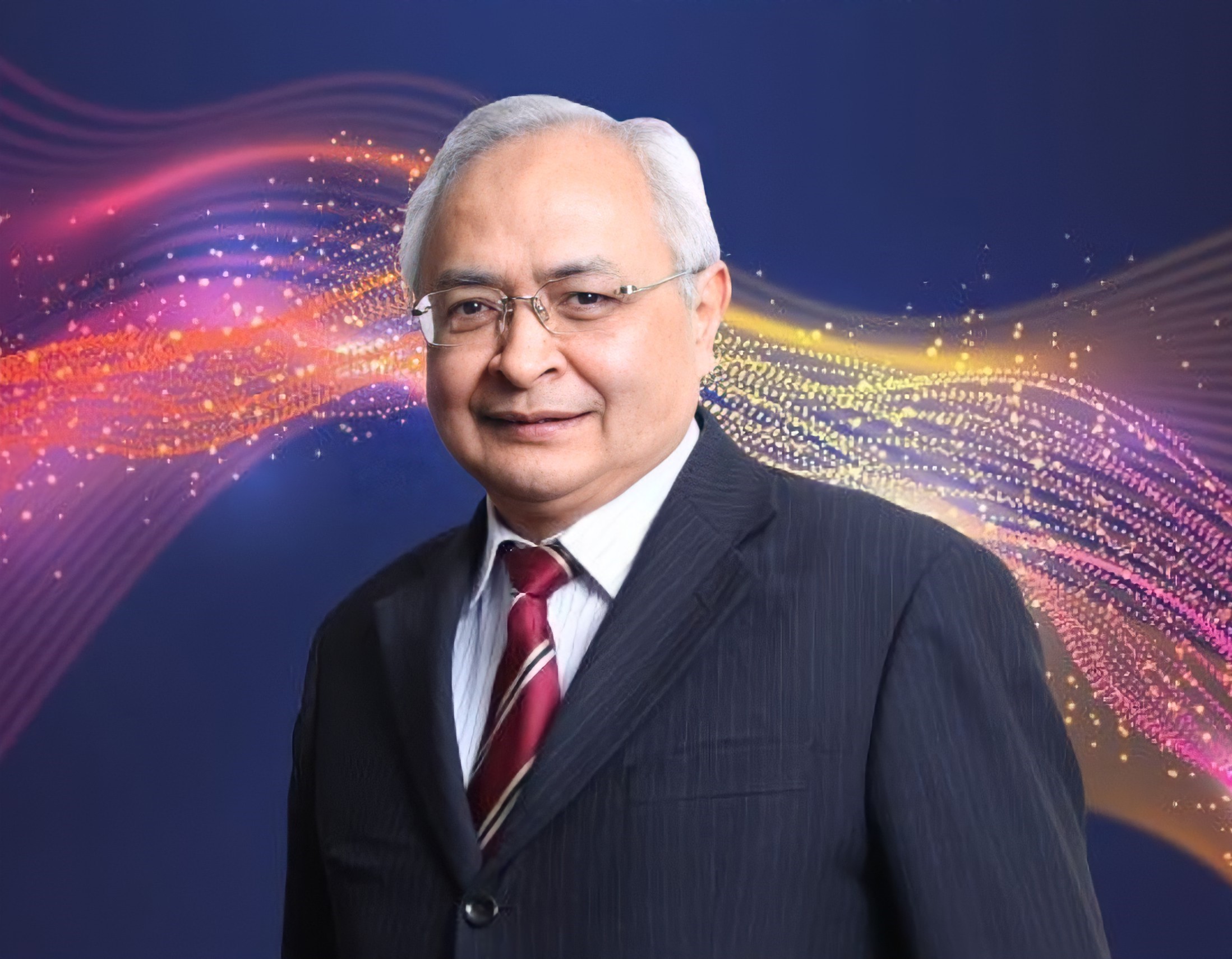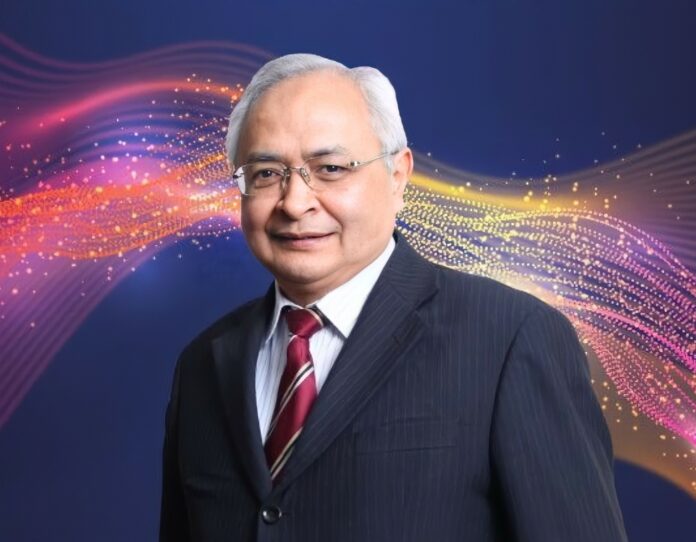
Khalid Yusoff, who has died at the age of 66, was a UK trained cardiologist who spent three decades promoting excellence in medical research in Malaysia, occupying leadership positions in three of the country’s leading universities and as a trusted adviser to successive governments.
The oldest of four brothers, Khalid was born in Kelantan, in the north east of the Malaysian peninsula. His father was a judge in the Malaysian Syariah (sharia) Court, which has jurisdiction over Muslims in respect of certain aspects of Islamic law. His mother was a homemaker. His upbringing was not always easy, and he spent much time looking after his three younger brothers. He had, however, an insatiable desire for education, encouraged by some deeply committed teachers, one of whom walked several miles each day to his home, often staying late to work with him by the light of a kerosene lamp. Recognised as an exceptional student even in primary school, he was awarded a series of scholarships that would take him across the globe in the following decade. The first took him to the prestigious Malay College of Kuala Kangsar, sometimes called the “Eton of the east.” The second, in 1973, was one of only 20 awarded each year to Malaysian students to study in Australia, taking him to McKinnon High School in Melbourne. The third, a Colombo Plan scholarship, which supported university education in the Commonwealth, allowed him to join the medical school of the University of Melbourne, from where he graduated in 1980 and which, in 2014, would recognise his contributions with an honorary doctorate in medical sciences. He had also considered doing engineering but, ever one for a challenge, decided to go for medicine as he thought it would be more difficult to get a university place. Two further scholarships brought him to the UK, initially to the University of Newcastle upon Tyne, where he gained his membership of the Royal College of Physicians and started his training in cardiology, followed by a British Council award to study electrophysiology in Glasgow.
Although he could easily have pursued a successful career abroad, Khalid was deeply committed to Malaysia and especially to strengthening medical research and training there. Throughout his time abroad he had organised initiatives to support disadvantaged students in the kampungs (villages) in Kelantan.
CAREER
By 1991 he was back in Malaysia and had risen to head of the department of medicine at the Universiti Kebangsaan Malaysia (UKM). He revamped the curriculum, shifting to problem based learning, and established a masters in medicine degree in association with the University of Melbourne and the Royal College of Physicians of Edinburgh. He also established the first clinical electrophysiology laboratory in Malaysia, where many of Malaysia’s leading cardiologists received their training. By 1996 he was deputy dean, responsible for postgraduate training and research, leading the development of the university’s new teaching hospital along with new centres in areas such as molecular medicine. By 2000 he had been appointed dean of the medical faculty.
In 2004 he accepted the challenge of becoming the foundation dean of the medical faculty at the Universiti Teknologi MARA (UiTM). He had to build up the faculty almost from scratch and, over the following decade, would create three campuses, at Selayang, Sg Buloh, and Teluk Intan. The scale of the task was enormous, and he drew extensively on support from colleagues at Harvard and his alma mater, the University of Melbourne. His initiatives included an Institute for Medical Molecular Biology and a Centre for Translational Research and Epidemiology. Having established the medical faculty at UiTM, by then rated among the best in Malaysia on a range of metrics, it was time to move on. In 2013 he became the vice chancellor and president of UCSI University, Malaysia’s leading private university, which he took from strength to strength.
Although his responsibilities at his own universities would be enough for any one person, Khalid was committed to change at the national level. While at UKM he had established a national Medical Deans Council that has contributed substantially to modernisation of medical curriculums in Malaysian medical schools. He would later write a report for the National Science and Research Council on the research ecosystem in Malaysia, recommending the creation of a research management agency, a one-stop centre for managing research, which was eventually accepted by the government. He also drafted the Malaysian Code of Responsible Conduct in Research and served on the National Science Council, which advises the prime minister.
AWARDS
Given these achievements, it was understandable that Khalid would receive numerous awards in Malaysia and beyond. In 2000 he was awarded the title Dato’ Paduka Setia Mahkota Kelantan, often considered equivalent to a knighthood in other Commonwealth countries, and in 2001 he received the Albert Schweitzer Gold Medal for contributions to medicine and humanism. In 2010 he became president of the College of Physicians of Malaysia.
Despite his heavy managerial responsibilities, Khalid remained active in research. I got to know him through the Prospective Urban and Rural Epidemiology (Pure) study, following up over 200 000 people in 27 countries, into which he recruited almost 12 000 participants in four of Malaysia’s states. Although his research had mainly been in advanced electrophysiology, he recognised the importance of health services that could make a difference at a population level. The Hope-4 cluster randomised trial, on which we collaborated with colleagues in Canada and Colombia, showed that it was possible to achieve an appreciable reduction in cardiovascular risk factors with an intervention designed with patients and frontline health workers that combined task shifting, a simplified treatment regime, and peer support. The Respond project, which we are undertaking with colleagues in the Philippines, has been allowing people with hypertension to tell stories in their own words about the challenges they face in managing their conditions.
When I met Khalid for the first time, my impression was of someone who was serious, with high expectations of those he worked with. He was very supportive of junior staff, however, recalling the encouragement he had received as a young boy in Kelantan. When you got to know him better you realised that he had a wry sense of humour, with a distinctive laugh. He was an avid reader of medical and education journals and textbooks, but in his rare moments of relaxation he enjoyed biographies and Malay poetry, watching James Bond and Mr Bean films, photography, and stargazing. His work involved extensive international travel and he took a keen interest in the cultures of the countries he visited.
He retained strong links with British medicine as a fellow of the Royal Colleges of Physicians of London, Edinburgh, and Glasgow, and he served as an examiner for the membership examinations in Kuala Lumpur.
He bore his final illness with stoicism, working until the very end in circumstances complicated by the tight covid restrictions in Malaysia.
He leaves his wife, Khatijah, an internationally recognised virologist; his son, Zul; his daughter, Azzah; and his son-in-law, Zaharil.
Khalid Yusoff (b 1955; q University of Melbourne, Australia, 1980; FASc, DPSK, PSK, DMedSci (honoris causa) (Melb), FRCP (Edin), FRCP (Lond), FRCP (Glas), FACC (USA), Hon FRACP (Aust), Hon FPCP (Phil), FIAS, FMSA, FNHAM, FAMM), died while undergoing treatment for prostate cancer on 5 April 2021













![[Video] monoloQue menampilkan Aizat Amdan – Urusan Seri Paduka Baginda (Versi Agong)](http://berita.mcoba.org/wp-content/uploads/2019/08/monoloQue-menampilkan-Aizat-Amdan-Urusan-Seri-Paduka-Baginda-218x150.jpg)













